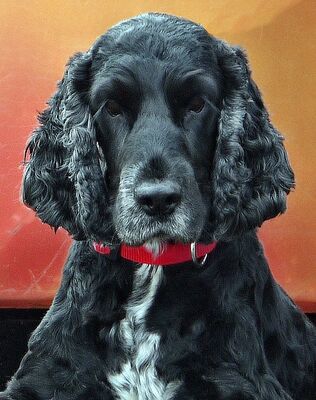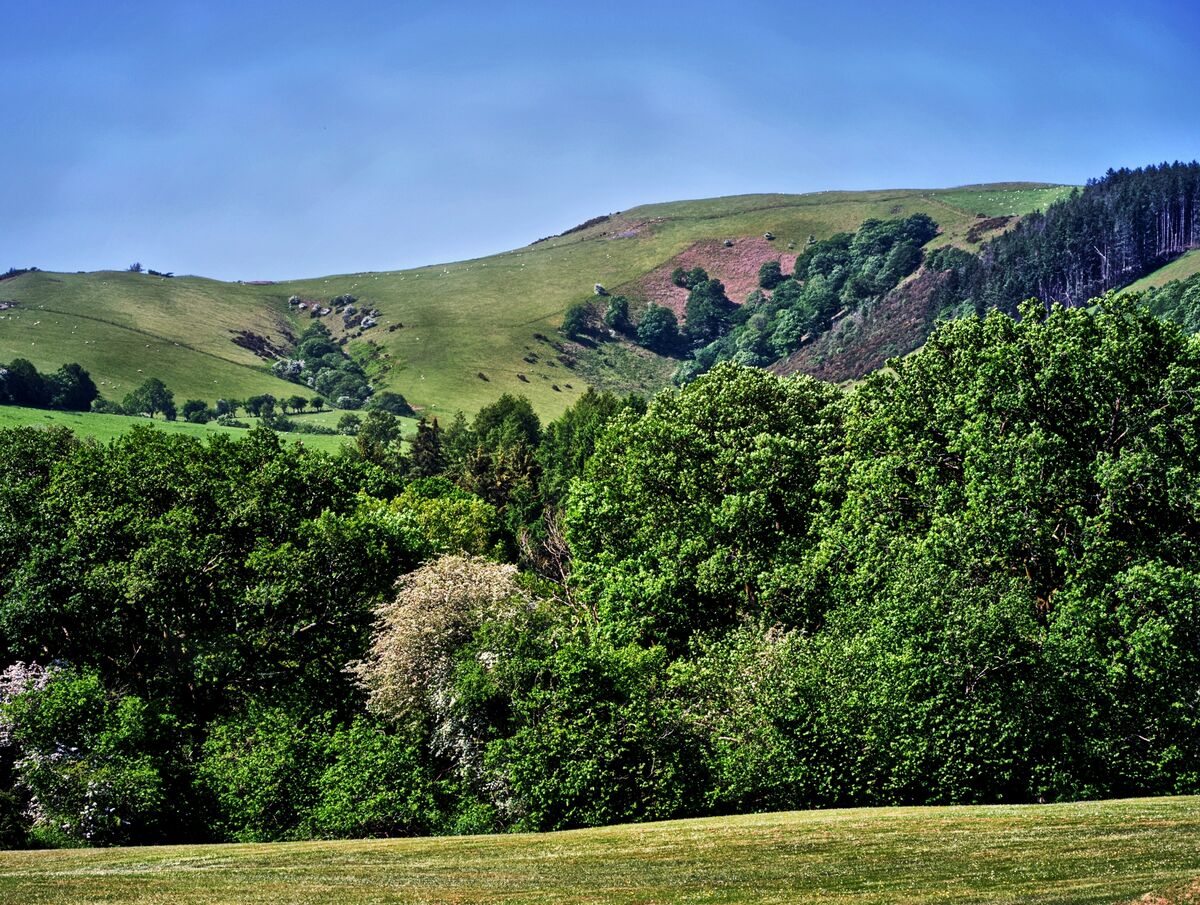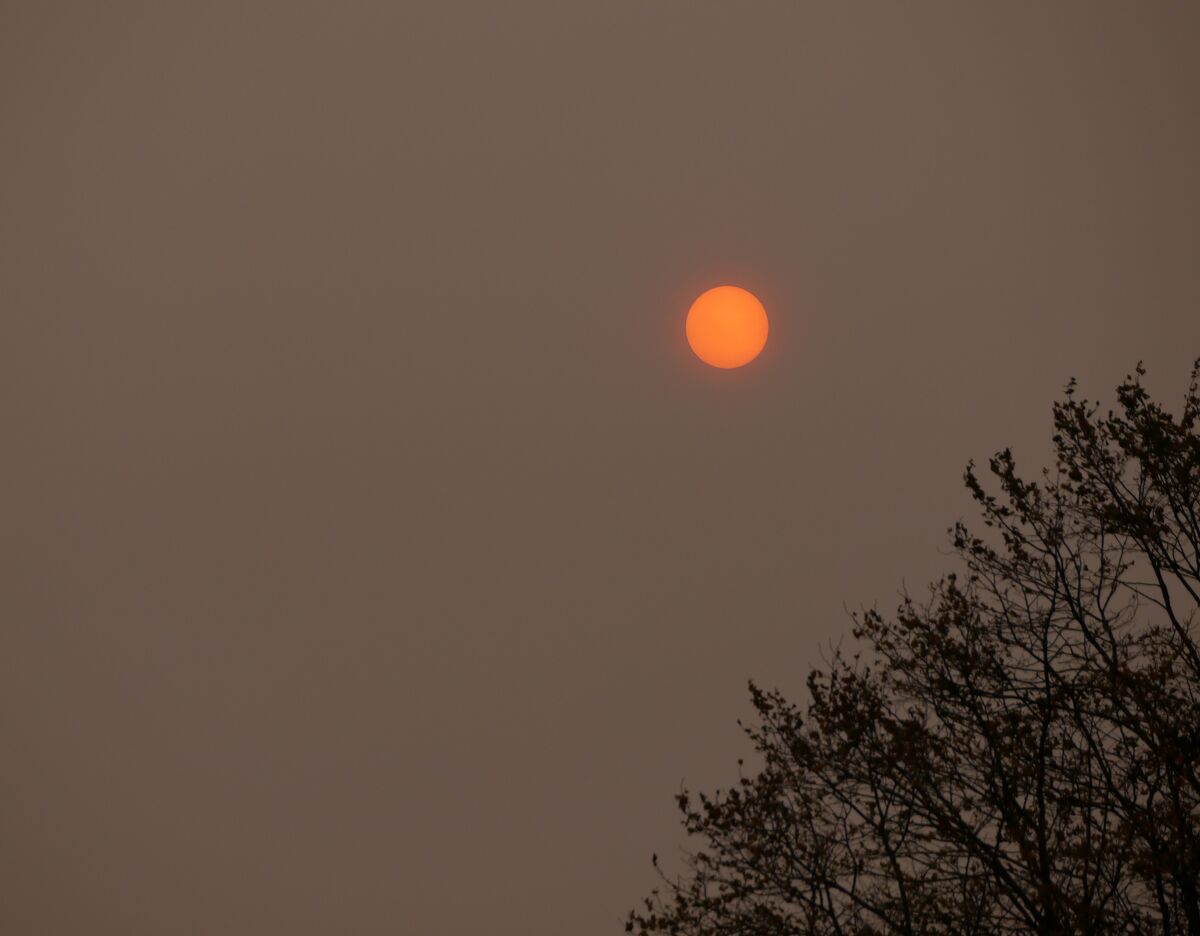Haze
Jun 1, 2023 06:52:42 #
Herewith copy of email sent to a photographic friend - now for Hog comments:
I think I've sent you a similar view already.
My objective is to get a shot with less natural haze - So far this is the best (I think).
Many Hogs use $$$$ lenses and then shoot through haze - big waste of $. and no result worth printing. I guess it's a waiting game rather than a spending game. (except for those GAS afflicted)!
What do you think? Look forward to your comments. (pxl reduced for email)
Distance is 50 metres to about a mile.
Best, D.
I think I've sent you a similar view already.
My objective is to get a shot with less natural haze - So far this is the best (I think).
Many Hogs use $$$$ lenses and then shoot through haze - big waste of $. and no result worth printing. I guess it's a waiting game rather than a spending game. (except for those GAS afflicted)!
What do you think? Look forward to your comments. (pxl reduced for email)
Distance is 50 metres to about a mile.
Best, D.
Jun 1, 2023 07:27:04 #
Jun 1, 2023 07:32:39 #
There is precedent.
Ansel Adams was known to wait for the perfect shot.
I don't have the patience for that. My life is filled with other things. I will use the dehaze slider.
Ansel Adams was known to wait for the perfect shot.
I don't have the patience for that. My life is filled with other things. I will use the dehaze slider.
Jun 1, 2023 07:42:33 #
Delderby wrote:
Herewith copy of email sent to a photographic frie... (show quote)
It is a waiting game.
I have gone to the same site for weeks before getting the shot that was envisioned.
And yes used an inexpensive lens.
Jun 1, 2023 08:46:57 #
Orphoto
Loc: Oregon
Im not seeing any significant haze in the image. Are you asking how we approach haze in our work?
Jun 1, 2023 09:56:46 #
Orphoto wrote:
Im not seeing any significant haze in the image. Are you asking how we approach haze in our work?
I like Affinity haze filter, but for this pic I used Smart Photo (a quick fix alternative). I don't use MS or Apple or Adobe, but that is only because of my mistrust of big anything. (Big brother can't watch or control me)!
So - should we shoot in haze and rely on PP, and if so by what method? Or play the waiting game?
Contrast adjustments seem to help, as can saturation or vibrant adjust. Recommendations appreciated.

Jun 1, 2023 10:04:54 #
Delderby wrote:
...So - should we shoot in haze and rely on PP, and if so by what method? Or play the waiting game?...
If you have the time, wait. Haze will reduce the information available in the image and there's only so much you can do with processing. Once the information is gone, the only recourse is to add estimated data (AI).
If the scene is transient, or if you are traveling through, take the shot now. Otherwise come back when the weather improves.
Jun 1, 2023 10:19:10 #
DirtFarmer wrote:
If you have the time, wait. Haze will reduce the information available in the image and there's only so much you can do with processing. Once the information is gone, the only recourse is to add estimated data (AI).
If the scene is transient, or if you are traveling through, take the shot now. Otherwise come back when the weather improves.
If the scene is transient, or if you are traveling through, take the shot now. Otherwise come back when the weather improves.
Thanks DirtFarmer - seems sound advice

Jun 1, 2023 11:10:38 #
DirtFarmer wrote:
...If the scene is transient, or if you are traveling through, take the shot now. Otherwise come back when the weather improves.
On re-reading this, just take the shot now. If you have the shot it will remind you of the scene and you can come back another day and try again if you're close enough. Digital photos don't cost much. Sieze the moment.
Jun 1, 2023 11:16:03 #
Delderby wrote:
Herewith copy of email sent to a photographic frie... (show quote)
On the scene, use a UV Haze filter for a slight improvement if your traveling or cannot repeatedly revisit the scene later.
The usual faux experts will point out that "digital camera sensor packs do not transmit UV so you dont need a UV Haze filter". 99.9% of Hawgsters do not know what a UV Haze filter actually does and does not do. BTW a filter labeled simply "UV" is actually "UV Haze" filter. Some filters are simply labeled "Haze". "UV" and "Haze" are just shorthand for "UV Haze". All three labels mean exactly the same thing.
The job of a UV Haze filter is not much about filtering out UV wavelengths. Its mainly about visually compensating for HAZE. Haze is a slight cooling of color and a loss of contrast. Haze is CAUSED by UV but have is not ultraviolet light. UV light is not haze but it causes haze. Haze is a SYMPTOM. We call it "UV Haze" we name the type of haze. Its not smoke haze. Its not fog or mist haze. It is UV haze, meaning its a scattering short wavelength lght. Its the same thing that makes the sky look blue.
When the ill informed majority parrot that digital camera do not need a lens filter to remove UV, they are correct in that very narrow truth. But that does NOT mean a UV Haze filter is redundant or useless, cuz removing UV is NOT what a UV Haze filter is for. A haze filter reduces the blueish scatter-light that reduces visual contrast. Its just a faint yellow filter.
Jun 1, 2023 11:56:28 #
Scattering of light occurs when the light passes through a medium that is nonhomogeneous. The atmosphere is nonhomogeneous, since it is composed of atoms and molecules. Scattering occurs in the atmosphere and it is the reason that the sky is blue.
Rayleigh scattering occurs when the scattering elements are smaller than the wavelength of the light being scattered. The scattering depends on the inverse 4th power of the wavelength, so blue light is scattered more than red light. So sunlight hits the atmosphere and more blue is scattered so the atmosphere appears blue even when you look away from the light source (the sun).
Mie scattering occurs when the scattering elements are similar in size or larger than the wavelength of the light being scattered. The relationship is more complex than Rayleigh scattering, but again, blue light is scattered more. So when there is smoke or haze, you get a red cast to the area near the sun (blue light is removed, but the sky is still mostly blue looking away from the sun because that's where the blue light goes).
When you are looking at a scene, haze will change the color balance of the distant objects because of haze. Blue light is scattered into the field of view, so there is a blue cast to the distant elements. A UV filter attempts to compensate for this by filtering out some blue light. The problem with this is that a filter is not specific to the object you are trying to image. It will filter out blue from nearby objects as well as distant objects.
I don't believe a UV filter will be effective enough to make any significant improvement in the distant objects without also affecting nearby objects. For that reason I would not recommend using a UV filter.
If you are one of the people who think a filter will protect your lens, a clear filter will do the same thing.
Rayleigh scattering occurs when the scattering elements are smaller than the wavelength of the light being scattered. The scattering depends on the inverse 4th power of the wavelength, so blue light is scattered more than red light. So sunlight hits the atmosphere and more blue is scattered so the atmosphere appears blue even when you look away from the light source (the sun).
Mie scattering occurs when the scattering elements are similar in size or larger than the wavelength of the light being scattered. The relationship is more complex than Rayleigh scattering, but again, blue light is scattered more. So when there is smoke or haze, you get a red cast to the area near the sun (blue light is removed, but the sky is still mostly blue looking away from the sun because that's where the blue light goes).
When you are looking at a scene, haze will change the color balance of the distant objects because of haze. Blue light is scattered into the field of view, so there is a blue cast to the distant elements. A UV filter attempts to compensate for this by filtering out some blue light. The problem with this is that a filter is not specific to the object you are trying to image. It will filter out blue from nearby objects as well as distant objects.
I don't believe a UV filter will be effective enough to make any significant improvement in the distant objects without also affecting nearby objects. For that reason I would not recommend using a UV filter.
If you are one of the people who think a filter will protect your lens, a clear filter will do the same thing.
Jun 1, 2023 12:05:30 #
DirtFarmer wrote:
Scattering of light occurs when the light passes t... (show quote)
I believe, from my work in the past, that there are dozens if not more, things that can cause haze, distortion etc as an object gets further from the viewer.
If I remember looking at art distant objects are not rendered as sharp and thus have a realism that is lacking in photography and pp making distant objects look either fake or not as far as they truly are.
Jun 1, 2023 12:23:28 #
Architect1776 wrote:
I believe, from my work in the past, that there are dozens if not more, things that can cause haze, distortion etc as an object gets further from the viewer.
If I remember looking at art distant objects are not rendered as sharp and thus have a realism that is lacking in photography and pp making distant objects look either fake or not as far as they truly are.
If I remember looking at art distant objects are not rendered as sharp and thus have a realism that is lacking in photography and pp making distant objects look either fake or not as far as they truly are.
Yes, there are lots of things that affect imaging of distant objects. Scattering of light by haze (water vapor, smoke, dust, pollution...) is only one. The atmosphere is not static. There are currents of air that affect the density of air and since the atmosphere itself has structure (localized temperature variations, convection currents...) there are elements in the atmosphere that affect the light travelling from a distant object to the camera. Nonhomogeneities in the atmosphere cause variations in the index of refraction, and since they are random, the light path is distorted, leading to a loss of sharpness. So there is not only a problem with color balance, but also resolution (sharpness).
Jun 1, 2023 12:27:34 #
You Brits have such a gentle climate sans wildfires...
Here on the East Coast (VA & DC) of the US our sunsets have now turned golden orange...
Folks this is likely a result of horrific wildfires in Eastern Canada...
https://cwfis.cfs.nrcan.gc.ca/interactive-map Our sunsets "Haze" are pretty much obviously a result of atmospheric particulates since major airflow in the VA/DC area is from the North-Northwest out of Canada.
Haze is primarily an atmospheric induced photographic aberration that has long plagued the landscape genre.
And can be from a myriad of sources.
Wishing you much success on your photographic journey Delderby
Here on the East Coast (VA & DC) of the US our sunsets have now turned golden orange...
Folks this is likely a result of horrific wildfires in Eastern Canada...
https://cwfis.cfs.nrcan.gc.ca/interactive-map Our sunsets "Haze" are pretty much obviously a result of atmospheric particulates since major airflow in the VA/DC area is from the North-Northwest out of Canada.
Haze is primarily an atmospheric induced photographic aberration that has long plagued the landscape genre.
And can be from a myriad of sources.
Wishing you much success on your photographic journey Delderby
Jun 1, 2023 14:09:02 #
Thomas902 wrote:
You b Brits /b have such a gentle climate sans w... (show quote)
Thanks SodaPop, Dirt Farmer, User ID, Orphoto, Architect 1, Thomas902
Haze explained - particulated atmosphere does occur in UK occasionally. I have attached a pic of such from 2017.. The phenomenon was caused by forest fires in Portugal - gale force winds brought the smoke north to our east coast.
If you want to reply, then register here. Registration is free and your account is created instantly, so you can post right away.





